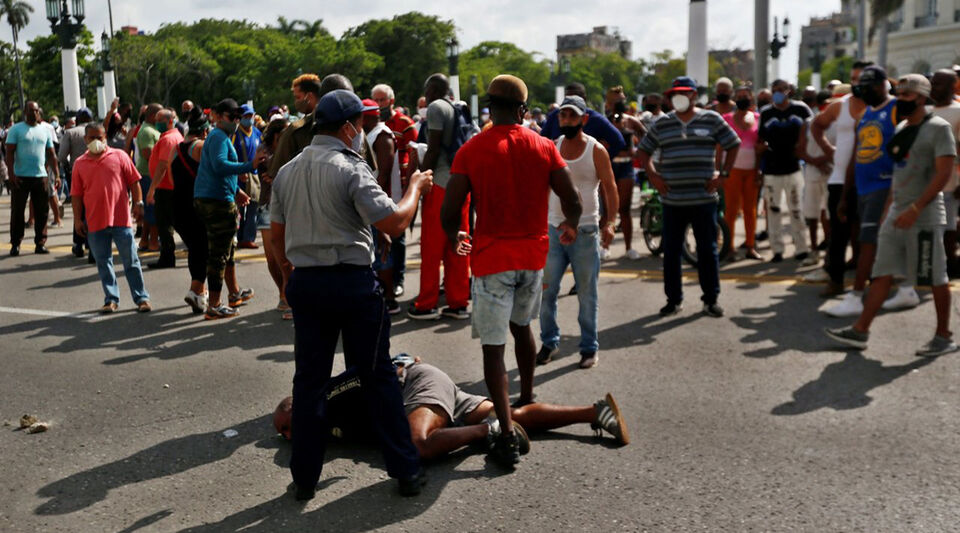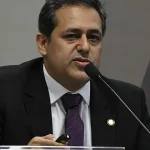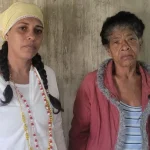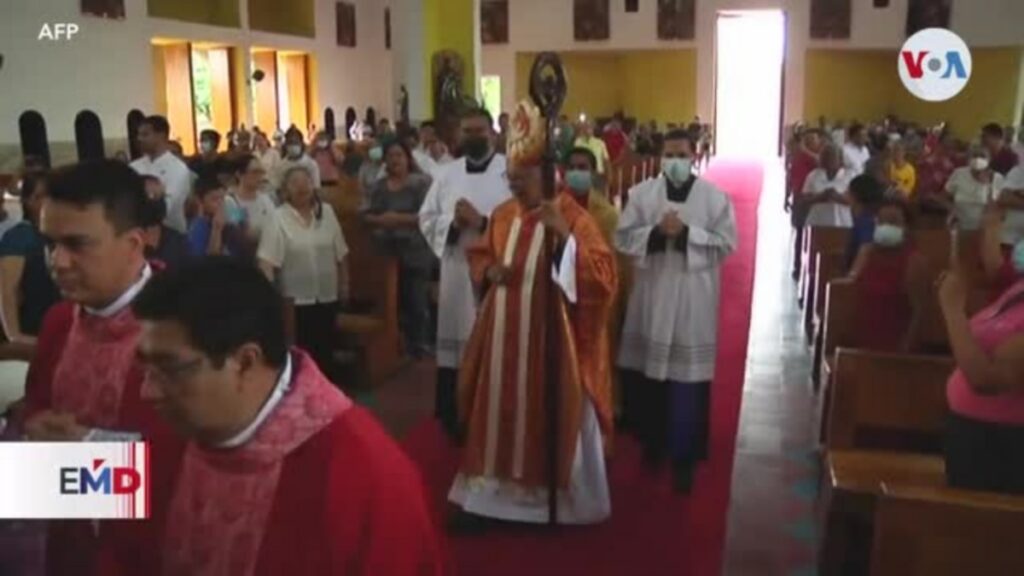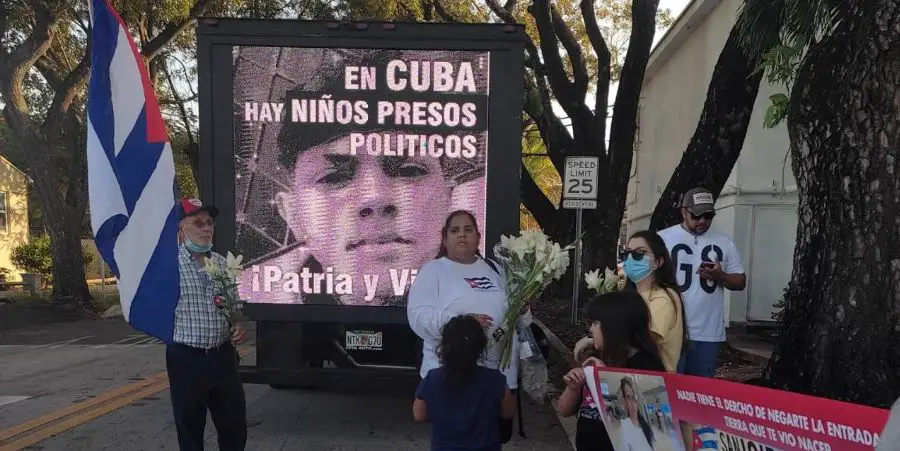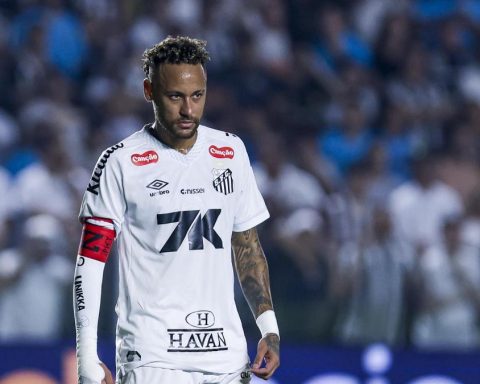The Cuban regime admitted having detained and tried 39 minors, and sentenced six adolescents between the ages of 16 and 18 to prison terms, after the protests of July 11, 2021 (11J). The data is part of a report government of December 30, 2022, presented by the diplomatic mission of Cuba before the Committee on the Rights of the Child, in Geneva. This Monday, the organization Prisoners Defenders (PD) drew attention to the recent publication of the document, unknown until now.
In the report, the Government accuses the Committee of sustaining “a deep ignorance of the reality of the country and the broad protection and promotion of the rights of children and adolescents in Cuba.” Immediately afterwards, he exposes his “opinions” on a claim imposed by Geneva on the regime in May 2022, which demanded an account of compliance with the rights of minors in Cuba, after the wave of repression unleashed by the 9/11 protests, date on which, the report says, “extremely serious violent actions and crimes” against State security took place.
“488 people have been sanctioned, including 39 young people between the ages of 16 and 18, mainly for crimes of sedition, sabotage, robbery with force and violence, attack, contempt and public disorder,” they summarize, near the end of the document. In addition, they affirm that “the sanctions of deprivation of liberty fell on 383 defendants, taking into account the seriousness and circumstances in which the events occurred, their degree of participation and personal conduct; among them 6 young people between 16 and 18 years of age.”
In the report, the Government accuses the Committee of sustaining “a deep ignorance of the reality of the country and the broad protection and promotion of the rights of children and adolescents in Cuba.”
However, the document from the Permanent Mission of Cuba to the UN in Geneva insists that “the age to be considered a criminally responsible subject is 16 years of age, as established in the current Penal Code” on the island. “Therefore, There is no minor under 16 years of age in Cuba who has been subjected to judicial proceedings, regardless of the outcome or seriousness of their acts.”
The report acknowledges that another 105 protesters who were put on trial had their prison sentences commuted to correctional work, and that among them were 33 young people between the ages of 16 and 18, “11 sentenced to correctional work with internment and a similar number of those sentenced to correctional work without internment and limitation of liberty, respectively”. To the latter, he affirms, surveillance was applied to achieve “the rectification of conduct” and “social reintegration.”
The text alleges that the Cuban authorities respect “the freedom of assembly, demonstration and association”, including that of children and adolescents, but only if they have “lawful purposes” and do not oppose “compliance with the precepts” established by law .
Particularly upsetting to the authorities, the document states, was the Committee’s observation that “several children, some as young as 13, were violently detained, taken from their homes at night without their families being informed of their whereabouts, held , held incommunicado and transferred to different facilities to be interrogated for long hours”.
Regarding minors under 16 years of age, they affirm that “they receive decriminalized treatment and administrative measures are provided for their reorientation, specialized and individualized education” in special centers.
PD, in his commentary to the report, denounces that “the centers for minors are from the Ministry of the Interior, not from the Ministry of Education. They are prisons”, and adds that the document does not specify what treatment he gave to minors under 16 years of age.
They admit that “for cases between 16 and 18 years of age, it is executed in strict observance of the Criminal Procedure Law, in force since January 1, 2022”, which means being treated with the same rigor as those who are beyond that age range, even though “special treatment” is promised during the trial.
PD, in his commentary to the report, denounces that “the centers for minors are from the Ministry of the Interior, not from the Ministry of Education. They are prisons”
Last May 11, PS denounced that at the end of April in Cuban jails there were 1,048 political prisoners and prisoners of conscience. Although there are 18 fewer than in March, the organization, based in Madrid, points out in its latest monthly report that more cases of minors “have surfaced.”
The organization emphasized an increase in the number of minors incarcerated, which in April totaled 35 (two more than in March). Of these, four are girls, who are serving sentences or are in criminal proceedings. The organization points out that “a good part” is in penitentiary centers that the Government calls with the euphemism of Comprehensive Training Schools.
At least 18 teenagers have been charged or convicted on the sedition charge, one of the harshest figures in the Penal Code, which the regime has used to punish 9/11 participants. “The average sentence for these convicted minors is five years in prison, a punishment on average higher than that suffered by adults in political prison before 9/11,” says PD.
________________________
Collaborate with our work:
The team of 14ymedio He is committed to doing serious journalism that reflects the reality of deep Cuba. Thank you for accompanying us on this long road. We invite you to continue supporting us, but this time becoming a member of our newspaper. Together we can continue transforming journalism in Cuba.
